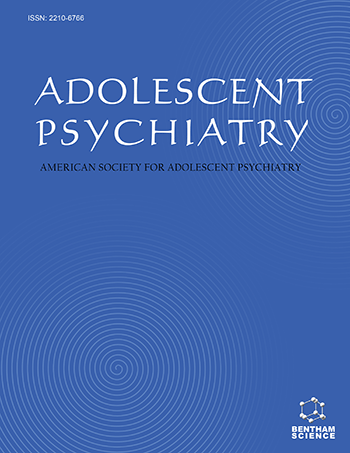Abstract
Until bright, creative, and alienated adolescents learn to make reasonable decisions, they will not engage in proactive, constructive, and creative change. Grounded in principles of reality therapy and choice theory, compassionate confrontation psychotherapy (CCP) stresses the concepts of conscious choice and acceptance of responsibility for ones actions. CCP provides a unique therapeutic experience to induce change. Viewed from this pragmatic and humanistic perspective, the overuse of psychiatric diagnoses and psychopharmacologic treatments inadvertently relieve gifted adolescents from accepting accountability for their choices. Evidence of the success of CCP can be found in the high percentage of alumni of the John Dewey Academy who are admitted to and complete their educations at leading colleges and graduate schools. Further evidence is provided by their academic performances at those institutions of higher learning.
Keywords: Adolescent psychotherapy, confrontation in psychotherapy, gifted adolescents, adolescent behavior disorders, CCP, alienated, Boarding School, Self-Destructive, Compassionate, gifted
Adolescent Psychiatry
Title: Compassionate Confrontation Psychotherapy: Working with Gifted but Self-Destructive Adolescents in a Therapeutic Boarding School
Volume: 1 Issue: 3
Author(s): Thomas Edward Bratter
Affiliation:
Keywords: Adolescent psychotherapy, confrontation in psychotherapy, gifted adolescents, adolescent behavior disorders, CCP, alienated, Boarding School, Self-Destructive, Compassionate, gifted
Abstract: Until bright, creative, and alienated adolescents learn to make reasonable decisions, they will not engage in proactive, constructive, and creative change. Grounded in principles of reality therapy and choice theory, compassionate confrontation psychotherapy (CCP) stresses the concepts of conscious choice and acceptance of responsibility for ones actions. CCP provides a unique therapeutic experience to induce change. Viewed from this pragmatic and humanistic perspective, the overuse of psychiatric diagnoses and psychopharmacologic treatments inadvertently relieve gifted adolescents from accepting accountability for their choices. Evidence of the success of CCP can be found in the high percentage of alumni of the John Dewey Academy who are admitted to and complete their educations at leading colleges and graduate schools. Further evidence is provided by their academic performances at those institutions of higher learning.
Export Options
About this article
Cite this article as:
Edward Bratter Thomas, Compassionate Confrontation Psychotherapy: Working with Gifted but Self-Destructive Adolescents in a Therapeutic Boarding School, Adolescent Psychiatry 2011; 1 (3) . https://dx.doi.org/10.2174/2210676611101030227
| DOI https://dx.doi.org/10.2174/2210676611101030227 |
Print ISSN 2210-6766 |
| Publisher Name Bentham Science Publisher |
Online ISSN 2210-6774 |
 19
19
- Author Guidelines
- Graphical Abstracts
- Fabricating and Stating False Information
- Research Misconduct
- Post Publication Discussions and Corrections
- Publishing Ethics and Rectitude
- Increase Visibility of Your Article
- Archiving Policies
- Peer Review Workflow
- Order Your Article Before Print
- Promote Your Article
- Manuscript Transfer Facility
- Editorial Policies
- Allegations from Whistleblowers
Related Articles
-
Adolescence and Borderline Behavior - Between Personality Development and Personality Disorder
Adolescent Psychiatry Destruction as a Means of Survival: The Paradigm of Modern Psychopathology
Adolescent Psychiatry Editorial: Seeking Answers to Questions in Adolescent Psychiatry
Adolescent Psychiatry The Impact of Adverse Childhood Experiences (ACEs) on Suicidal Ideation and Suicide Attempts in an Inpatient Adolescent Sample
Adolescent Psychiatry Child Mental Health in the Philippines
Adolescent Psychiatry Judging Children as Children
Adolescent Psychiatry Stuck Between Under and Overattunement: An Adolescent's Struggle with Attachment, Autonomy and Sexual Identity
Adolescent Psychiatry Promoting Well-being and Resilience in Employing a Relationship Centered Approach: A Case Study of a Pre-adolescent Boy
Adolescent Psychiatry New Onset ADHD Symptoms in Adolescents and College Students: Diagnostic Challenges and Recommendations
Adolescent Psychiatry Diagnosis and Treatment of Common Sleep Disorders in Adolescence
Adolescent Psychiatry The Assessment of Attenuated Psychotic Symptoms in Adolescents: Concepts, Practical Approaches and Prediction of Risk
Adolescent Psychiatry New Pathways of Intervention for Adolescents at Clinical High Risk of Psychosis: Improving Meta-representation Skills and Strengthening Identity with Video-Confrontation Techniques
Adolescent Psychiatry Novel Drugs of Abuse: A Snapshot of an Evolving Marketplace
Adolescent Psychiatry Clinical Guidelines for the Detection, Prevention, and Early Intervention of Adolescent Substance Use
Adolescent Psychiatry Cyberbullying and Depression Among Adolescents in an Acute Inpatient Psychiatric Hospital
Adolescent Psychiatry Thriving, Managing, and Struggling: A Mixed Methods Study of Adolescent African Refugees’ Psychosocial Adjustment
Adolescent Psychiatry Professionalism and Adolescent Psychiatry in the Digital Age
Adolescent Psychiatry Ambivalent / Preoccupied Attachment and Emotional Vulnerability in Adolescence
Adolescent Psychiatry Treatment Outcome of Three Female Adolescents with Borderline Personality Disorder
Adolescent Psychiatry Pharmacologic Treatments in “Prodromal Psychosis:” Making Clinical Decisions in the Absence of a Consensus
Adolescent Psychiatry

























